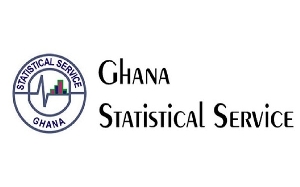 Ghana Statistical Service logo
Ghana Statistical Service logo
Ghana Statistical Service (GSS) is set to commence its first-ever Accommodation Unit Survey (AUS) on November 1, 2024, as part of efforts to collect detailed data on commercial accommodation facilities across the country.
Dr. Ebenezer Kojo Ocran, AUS Coordinator, made the announcement during a stakeholder engagement session held in Accra, aimed at preparing key industry players for the data collection phase.
The survey, covering all 16 regions and 261 districts, seeks to provide comprehensive insights into the country’s accommodation sector; a vital component of Ghana’s tourism industry.
It forms part of the broader Tourism Satellite Account (TSA) framework, which aims to accurately capture the tourism sector’s economic contributions.
“The AUS is designed to collect data from commercial accommodation units that provide short-stay accommodation for domestic and foreign guests.
“This is the first time that a sample survey with a longitudinal design which provides information about short-term commercial accommodation activity at national, regional and district levels is being conducted in the country. This survey is crucial for understanding the real impact of tourism on Ghana’s economy, particularly regarding its contribution to GDP,” Dr. Ocran said.
He added that the survey will collect data from over 1,000 licenced and unlicenced accommodation facilities, ranging from guesthouses to hotels.
Information gathered will include revenue, employment figures, occupancy rates, operating costs and taxes paid by the businesses.
Dr. Ocran emphasised the need for full cooperation by accommodation operators, noting that accurate and comprehensive data is critical for sector growth and development. “If operators fail to provide the needed data, it will impact the quality of information used to guide national policies,” he said.
To execute the project, GSS is deploying 113 field workers – made up of 90 interviewers and 23 supervisors who will use both electronic and manual data collection methods to work in 1077 accommodation units across the country.
The survey is expected to provide real-time insights into the performance of Ghana’s accommodation sector, with data collected on a daily, monthly and annual basis.
One of the AUS’s main objectives is to address existing gaps in tourism data, particularly regarding unlicenced accommodation units. A previous survey by the Ghana Tourism Authority recorded just 550 licenced units out of the 9,602 units identified in the Integrated Business Establishment Survey (IBES) – revealing the need for more inclusive data.
The AUS, which follows other major surveys like the Ghana International Travel Survey and Domestic and Outbound Tourism Surveys, will offer a more holistic view of the tourism industry’s impact on the economy.
As such, Dr. Ocran urged stakeholders to actively participate in the process; highlighting the survey’s benefits for accommodation businesses. “The data collected will not only support national planning but also help individual businesses understand market trends and enhance their operations,” he said.
Comments from stakeholders
Chairman -National Technical Advisory Committee, Tourism Satellite Account (TSA) Project, Prof. Kwaku Boakye underscored the tourism sector’s critical role in the economy, noting its potential to be a major driver of economic growth.
However, he acknowledged the sector’s challenges – including a lack of credible data – which have hindered proper policy formulation and intervention.
“This engagement marks a crucial step toward addressing the tourism industry’s data gap and providing an accurate understanding of its contribution to GDP,” he remarked.
President-Ghana Hotels Association, Dr. Edward Ackah-Nyamike reiterated the lack of detailed data and how it has historically weakened the industry’s ability to advocate for policy changes – particularly regarding taxes and operational costs.
“We need a clear picture of our contribution to the economy, and this survey will provide the necessary facts and figures for us to make informed decisions and protect our industry,” he stated.
“With this collaboration, we are confident that data collected will give us a better understanding of our impact and enable us to speak with authority on the industry’s contributions,” added President of the Ghana Progressive Hotels Association, Rev. Emmanuel Geadda-Asando.
Dr. Spencer Doku, Director-Research, Monitoring and Evaluation, Ghana Tourism Authority (GTA), also noted that: “This baseline survey will provide comprehensive insights into key variables such as employment, revenue and length of stay, allowing Ghana to benchmark its performance against global standards”.